Farmer John Writes: In Flux
Harvest Week 3, July 12th – 17th, 2021
The season is underway. Unlike last week, when I shared My Inner World of farming with you, this week I will report on the outer world, the crops—not just the crops, but also some of the circumstances and considerations that surround the crops.
The Fire
You probably know that there was a huge fire at a chemical plant in Rockton, Illinois, several weeks ago. Some shareholders have inquired whether the smoke or debris affected our crops. No, we are 7 miles east of Rockton, and the smoke went directly south of the plant. We saw the plume from the farm, but did not get even a whiff of the smoke.
A Tornado
Well, I don’t think there really was a tornado nearby, though the weather service reported one in Rockton in an emergency phone notice. Rockton also blasted their emergency sirens. Usually, when there is a tornado, someone gets a photo of it and it gets broadcasted far and wide. All the photos that I saw of the storm were of dark, ominous clouds.
As scary clouds were gathering west of us, and with the phones pinging emergency warnings and sirens blaring, I took note. The crew had harvested about 3/4 of our garlic crop by the time the storm approached. I called them in and directed them to the farmhouse basement, our storm shelter.
There was another crew transplanting that day. Upon finishing their second field of fall brassicas, they had come in to transition to cabbage transplanting. Their timing was excellent, as they were near the farmstead when the storm hit, and they quickly sought shelter in the basement.
Also, there were maybe 20 people—mostly volunteers–on our packing line. After some deliberation and sky-watching, I announced that they should briskly follow me to the basement.
There were probably 35 or 40 of us in the basement, waiting out the storm, wondering if the house would start to shake and rumble and perhaps lift off. It did not.
After about 20 oddly congenial minutes in the basement, the storm let up and everybody went back to their jobs.
I have lived on the farm my whole life and have never seen a tornado or a funnel cloud. That doesn’t mean that a tornado will never strike the farm, but it does mean it’s not likely. Still, we were in the basement.
Wet
Some crops can be harvested wet, such as beets, broccoli, cabbage, sweet corn, melons, bunched kale, and bunched chard.
Muddy
Some crops cannot be harvested if the ground is muddy, such as garlic, carrots, and potatoes.
Moist
Some crops cannot be harvested when the foliage is wet, such as cilantro, dill, basil, arugula, and sage. Cilantro, dill, basil and arugula, however, need to be harvested when they are a little bit moist, or they will wilt in storage. I often check the dew on the grass in the mornings, and try to arrange harvest with just the right amount of moisture remaining. Of course, the moisture level might be right for a few minutes, then the wind may pick up and excessively dry these crops.
Late
Another challenge is that some crops, if they are not harvested in a timely way, will bolt and/or flower, or perhaps rot. When I say in a timely way, that often means in a two or three day window. Lettuce heads will bolt. Sometimes, before they are full-sized, they will start to rot. Dill and cilantro will flower; so will basil.
Early
Turnips will often succumb to worms before they reach maturity. The turnips can look perfect one day with no worm damage, but they are still too small to harvest. Two days later, the worms might have destroyed a third of them. We often harvest our turnips a bit small to avoid these damages.
Bugs
We usually cover the mustard greens, such as arugula, mizuna and choi, with row cover. This is to protect against flea beetles. On rare occasion, flea beetles are not a problem, so we decide not to cover. However, a crop of uncovered arugula that is beautiful on a Friday, and scheduled for harvest on the following Monday, can be ravaged by flea beetles on a hot weekend and be ruined by Monday morning. It can happen that fast—no exaggeration.
Heat
Broccoli is one of the most challenging crops to raise in the spring in this part of the Midwest, because a heat wave can decimate it. Sometimes we get pristine spring broccoli; often it is not pristine. Because of the intense bouts of occasional heat this spring, our broccoli was compromised. A third of it flowered before it even made heads. We have been putting lumpy, separating heads of broccoli that I am not proud of into boxes. They will still be delicious, even if they are off-putting in appearance. We raise broccoli in the spring, because it is such a popular crop, and sometimes it turns out great. Fall broccoli is a much more reliable crop, because it matures as the days are shortening and the weather is cooling.
Trust
Every day at the farm is a weather dance. A predicted rain might not arrive. A predicted sunny day might turn into rain. You may wonder how this can possibly be navigated. Most afternoons, at the end of the work day, Victor, Pollo and I make plans for the following day. Along with Nathan, we have another planning meeting early the next morning, before the field crew starts working. Often, that plan will be different from what we decided on the day before. And we might keep changing the plans as the day unfolds. A truck might not start. A tire might go flat. A crop might need special care. We re-schedule, re-prioritize. We must be continually nimble, yet ongoingly steady and resolute. Sixteen-or-so field workers must be kept busy, but with what? Week after week, crops are at stake. You customize your boxes. Your boxes have to be filled with items that you choose.
When you note all the things that can go wrong on the farm, all the disparate forces at work, you could easily decide to forego the drama and uncertainty and to buy your vegetables and herbs from a store. But, you have chosen to get them from us, to embrace or at least to risk the chaos, the flux, the uncertainty that accompanies a membership in a CSA farm. You have made the source of your food personal and local. You have decided to trust your farmer and your farm to provide for you and your family.
We are honored by your commitment.
Many, many thanks for putting your trust in us.
Warmly,
Farmer John
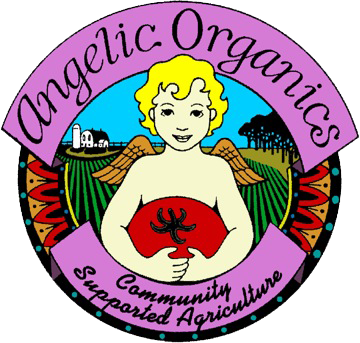
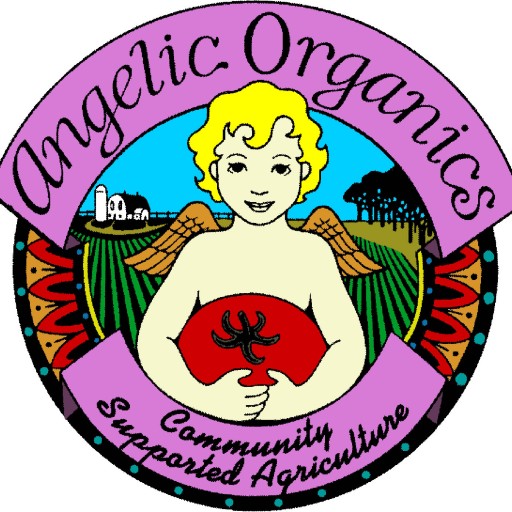
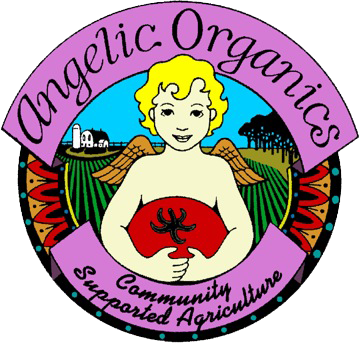
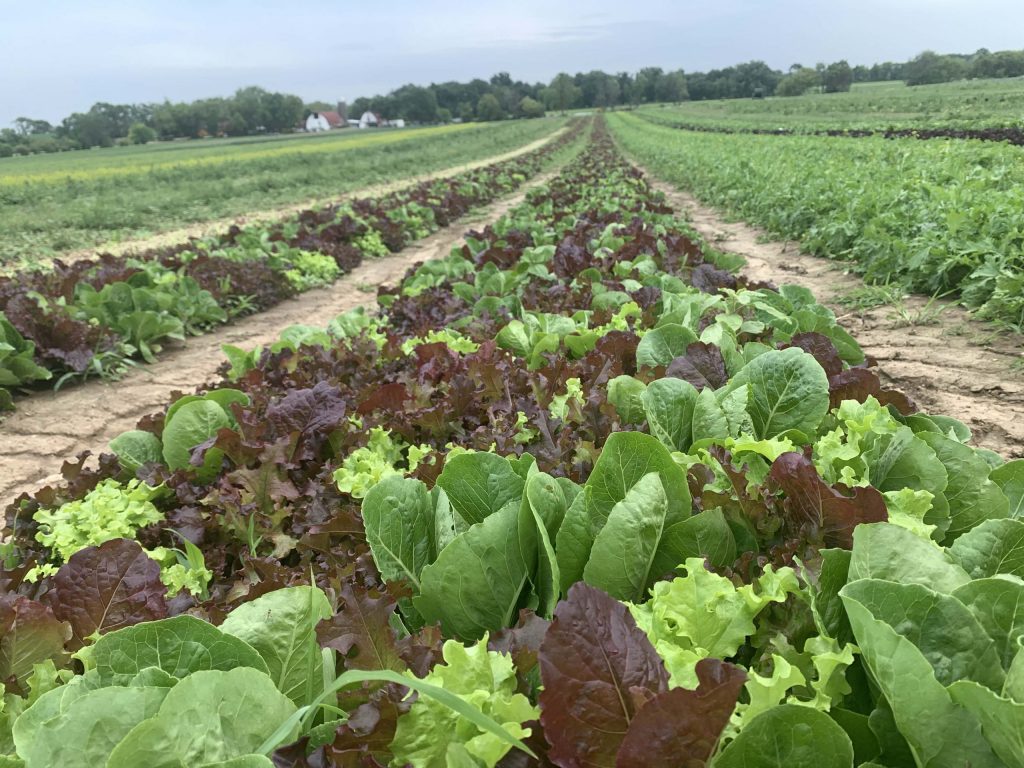
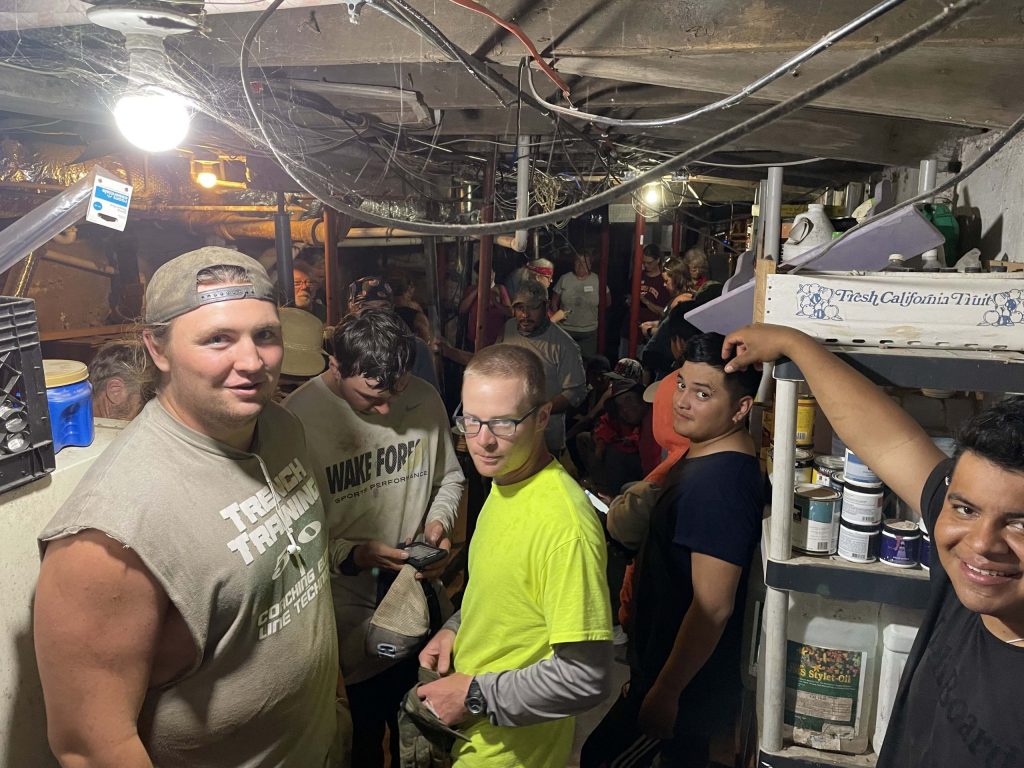
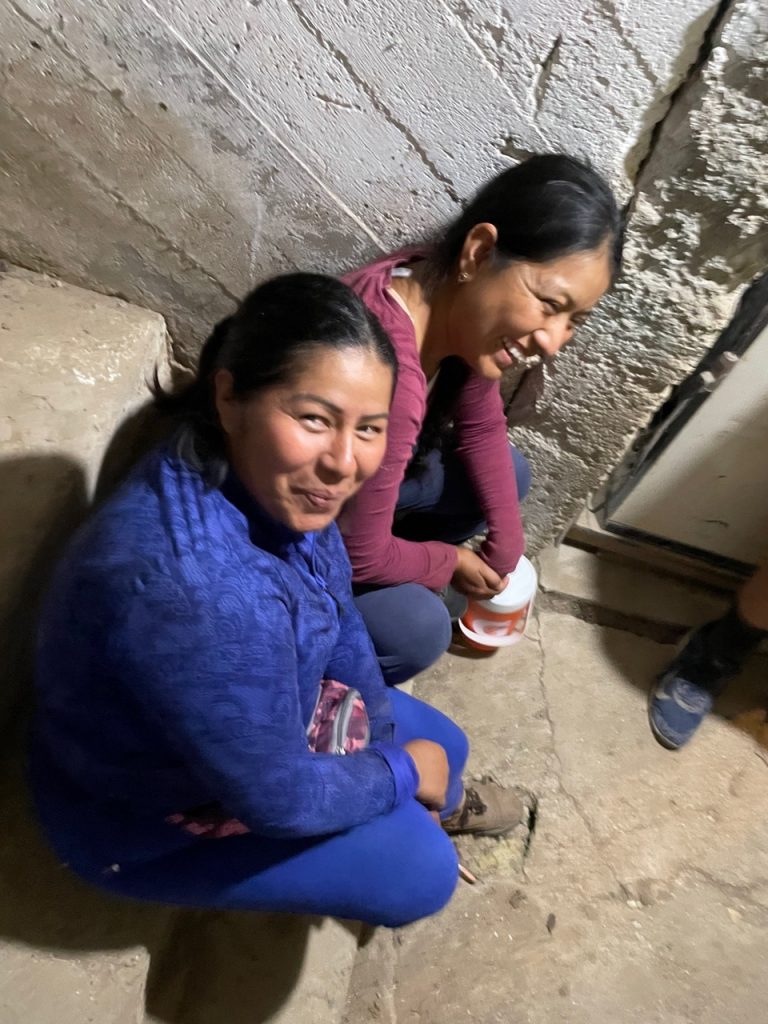
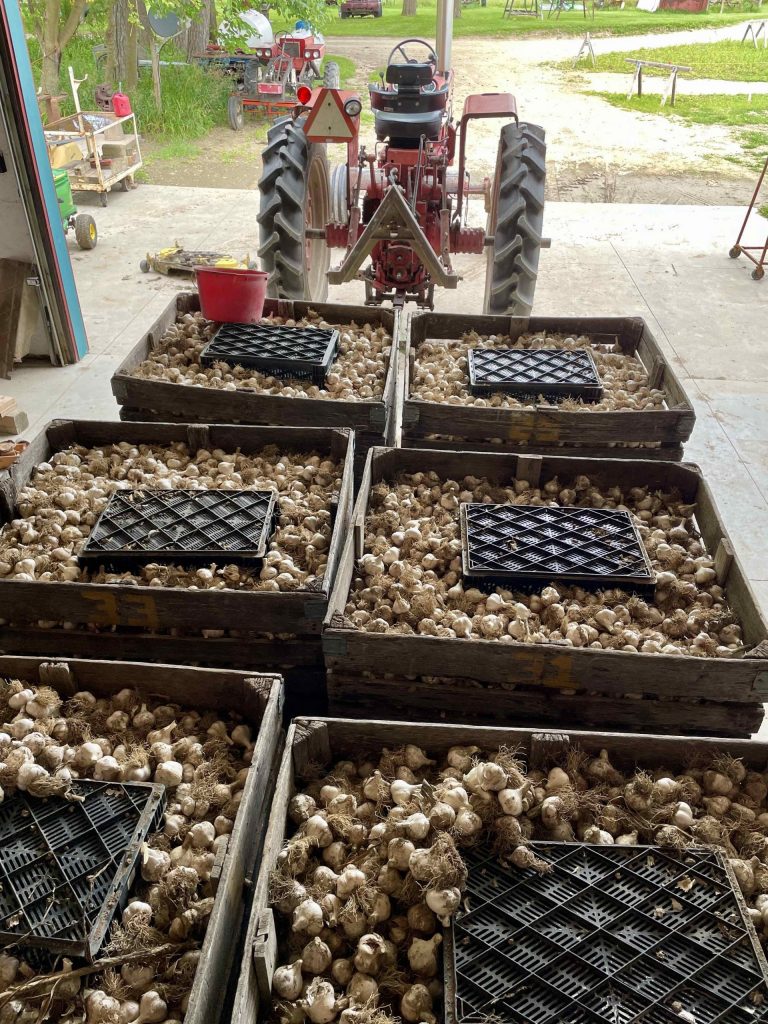
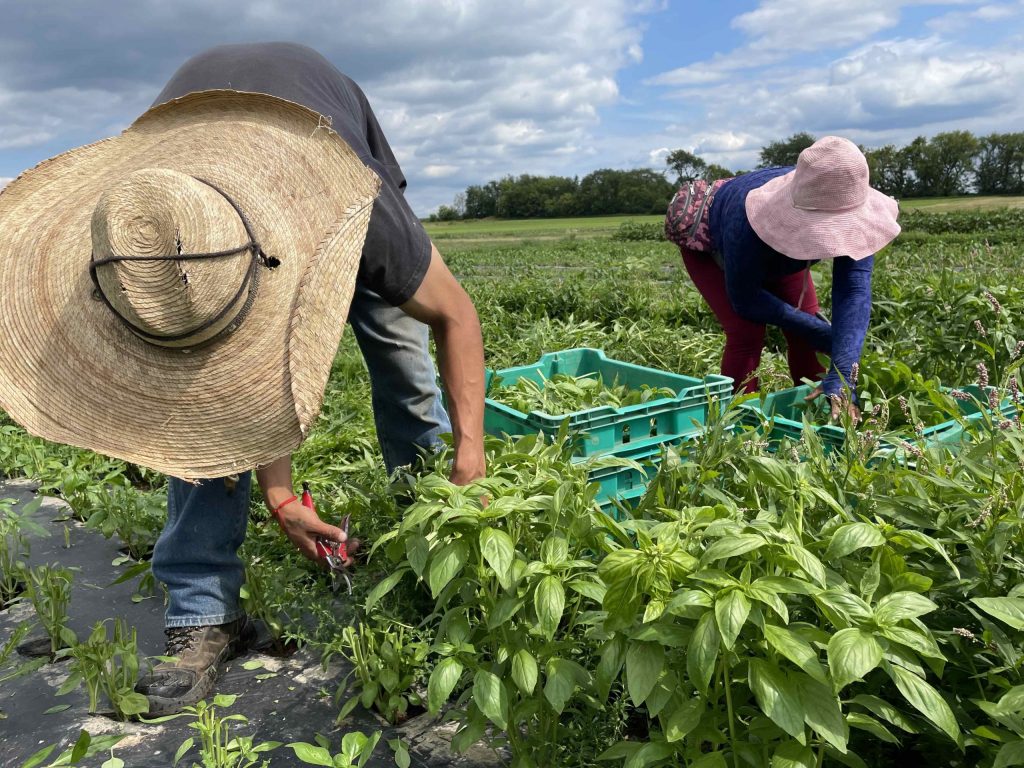
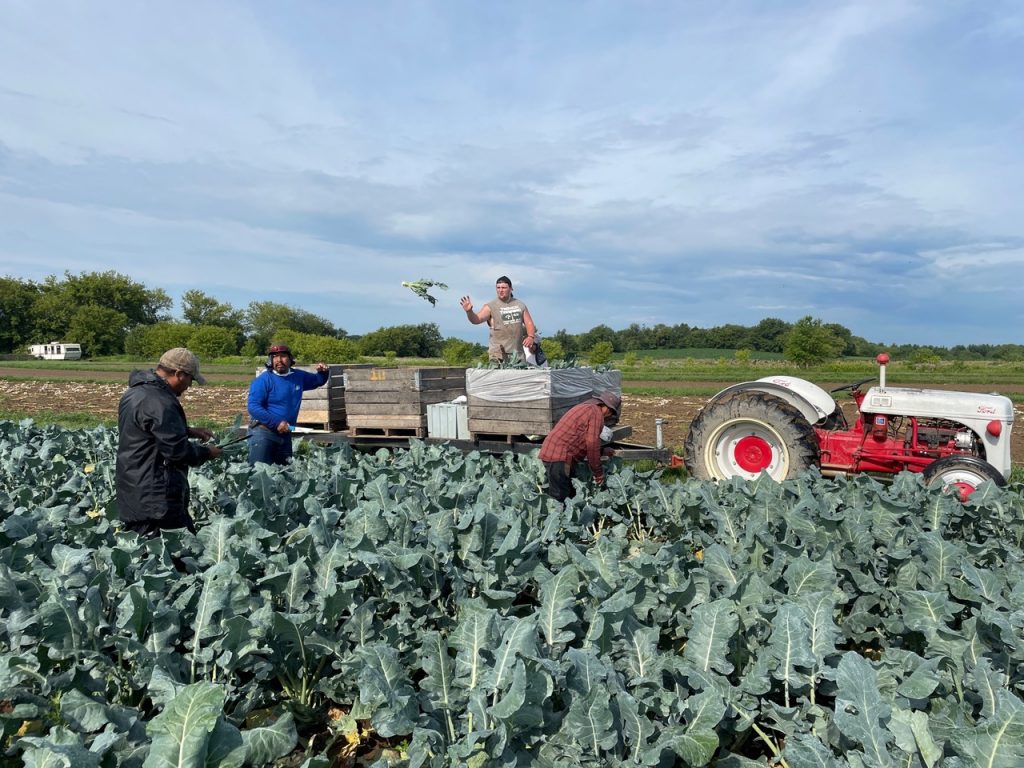

You’re right about the broccoli — while the head we received last week didn’t look great, it was absolutely delicious sauteed in olive oil with a bit of garlic. The quality of everything so far this year has been excellent (especially the turnips, which I always prefer when they’re smaller, and hence sweeter). Looking forward to tomorrow’s box and to what the rest of the season holds!
Thanks to you and the AO crew for all your hard work and dedication.
And as a follow up, this week’s broccoli was picture-perfect and even tastier (we ate slices of the stalk, which were sweet with freshness, as I prepared the florets for sautéing).
Thank you. We planted 16,000 broccoli seedlings for the fall.
Thanks for the nice comments–always appreciated.
Yep, I second it- you’re correct about the broccoli. Our head already had a nice rime of mold going when we received it. We salvaged most of the 2 stem portions for our very lucky Schnauzer, though.
I stake my claim now: the fall broccoli shall belong to the humans in this household! Lucky dog…
Better discuss the fall plan with your dog.